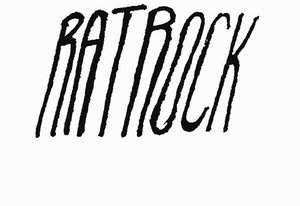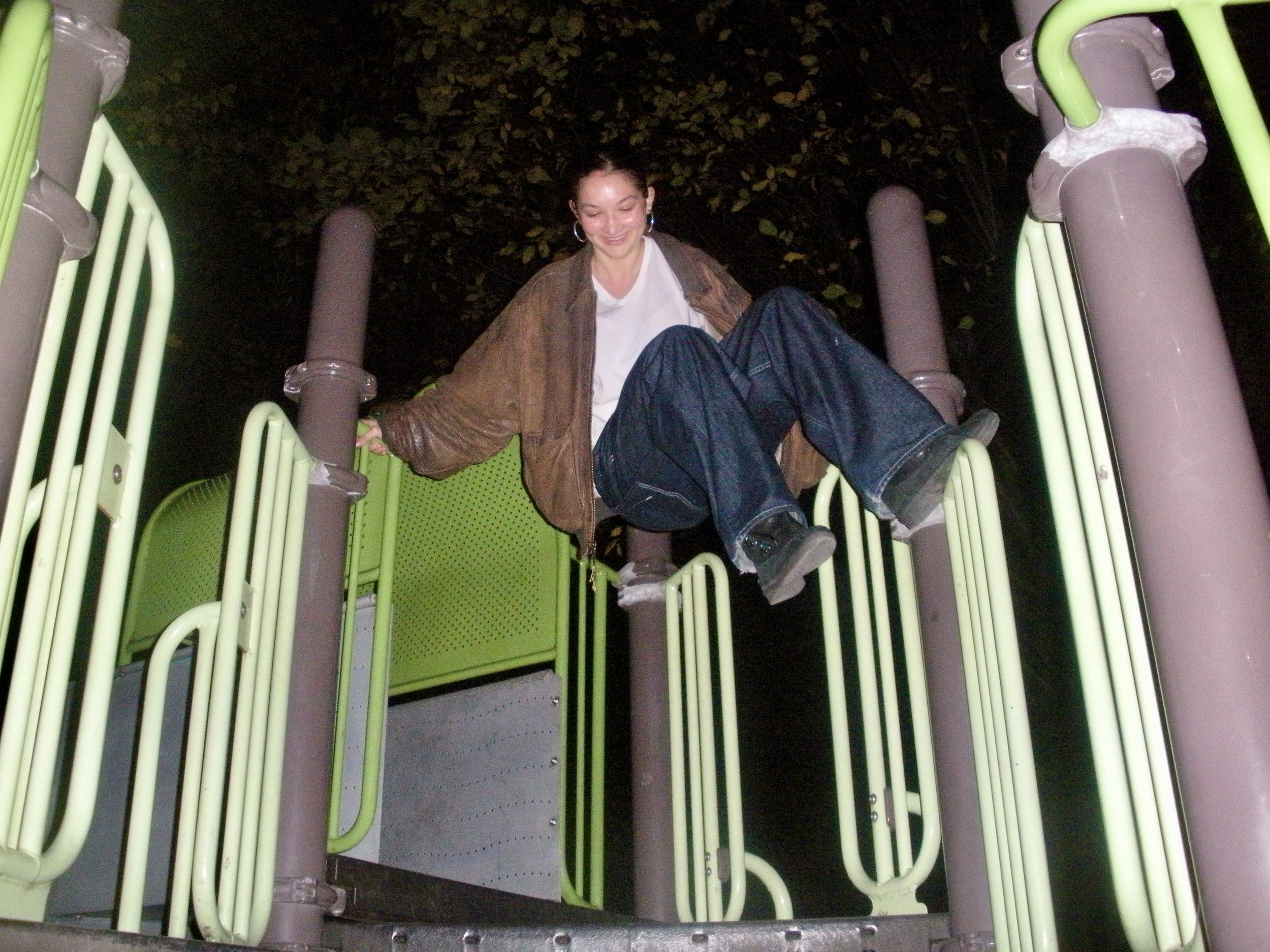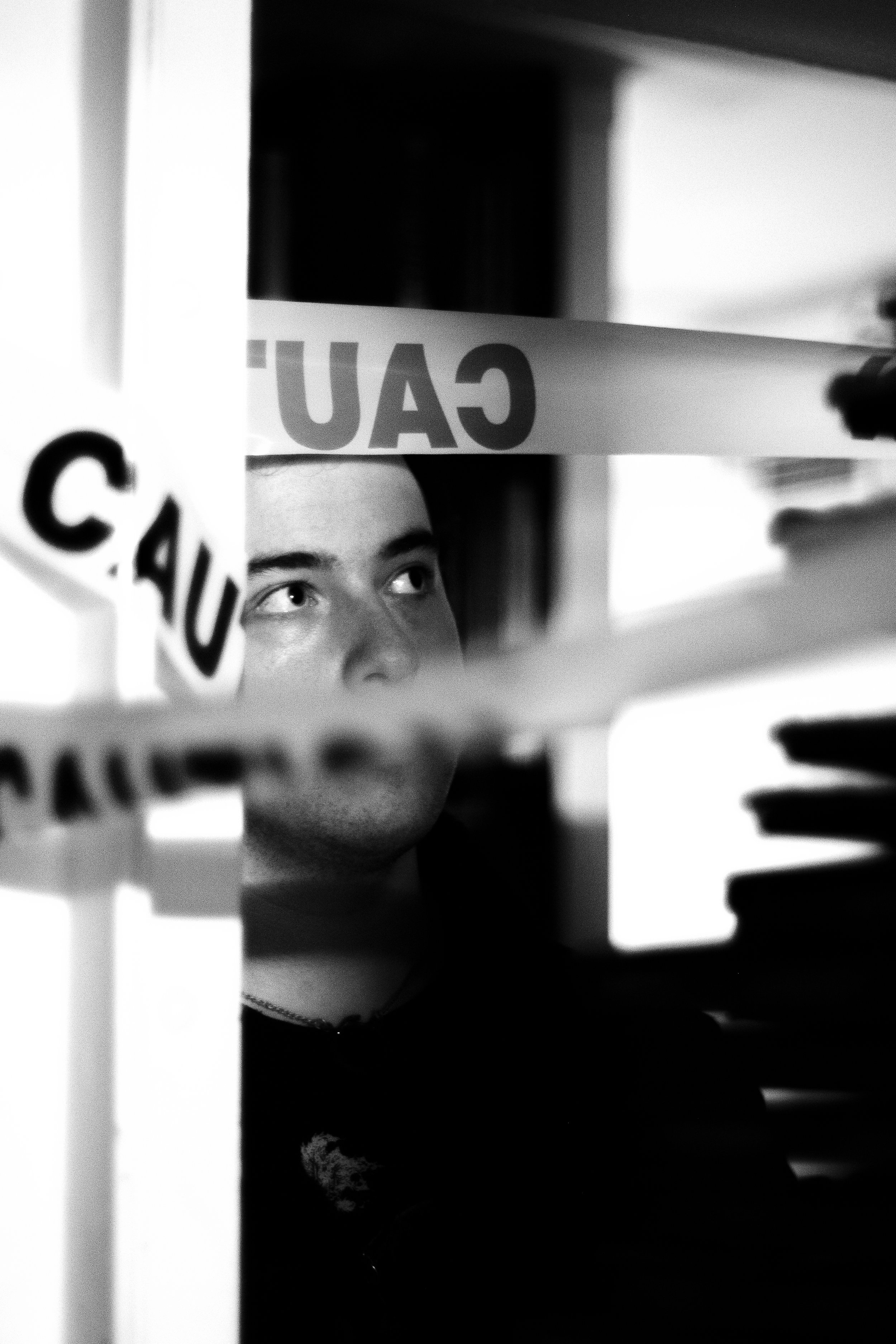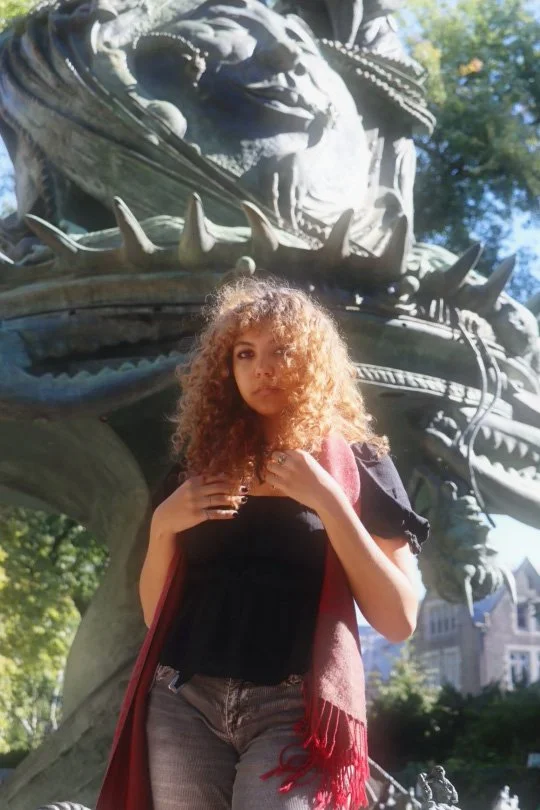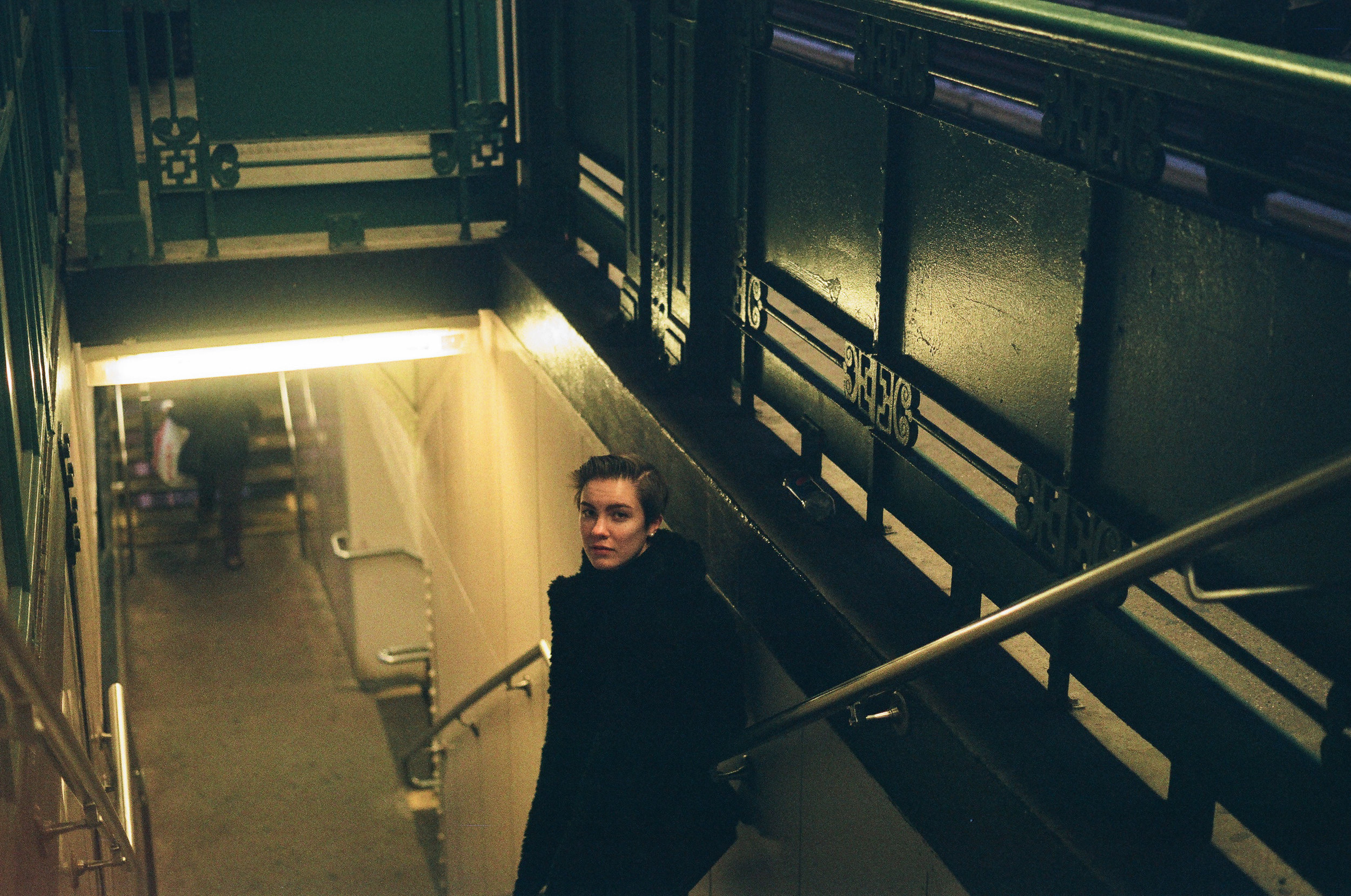
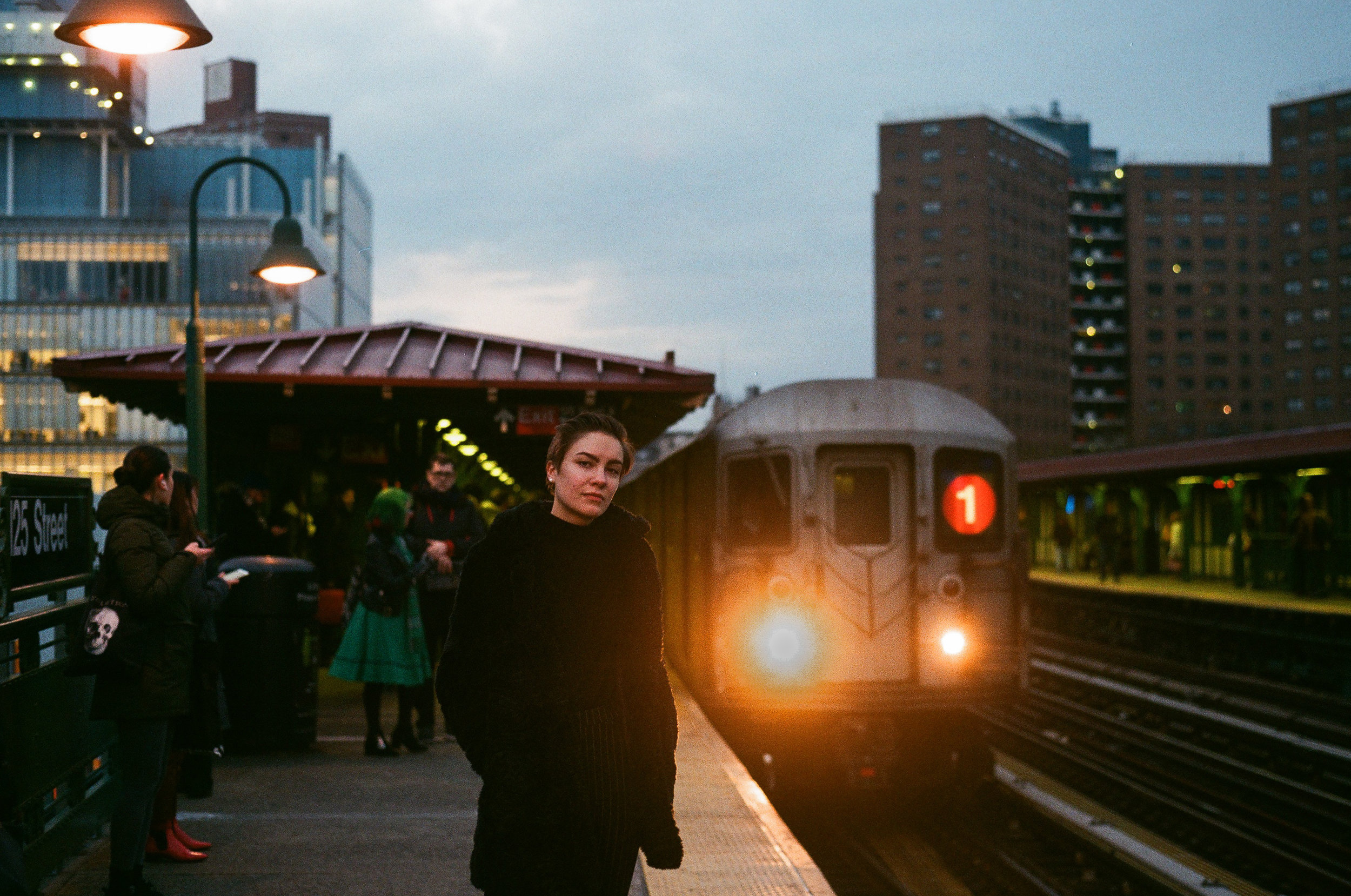
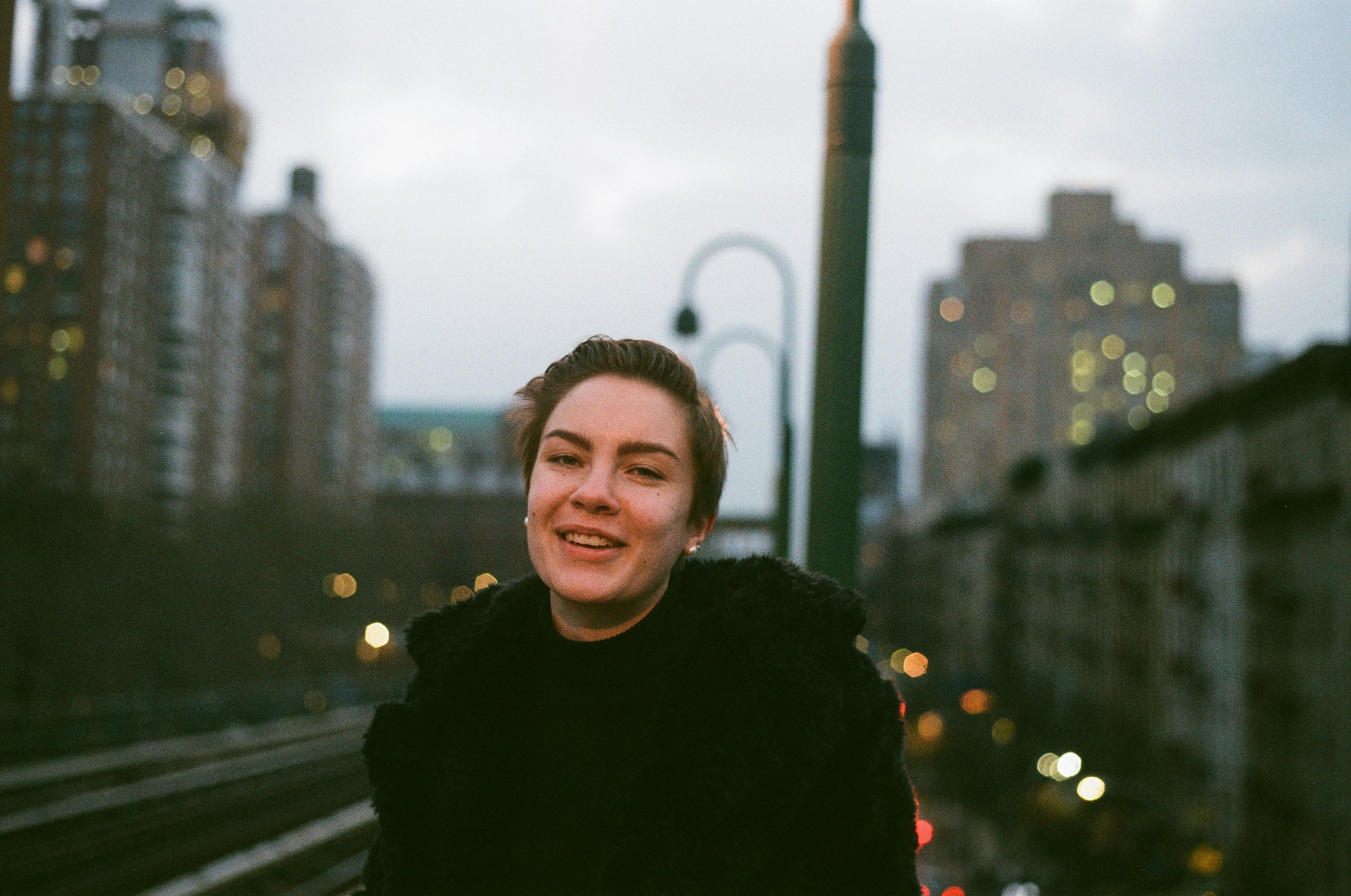
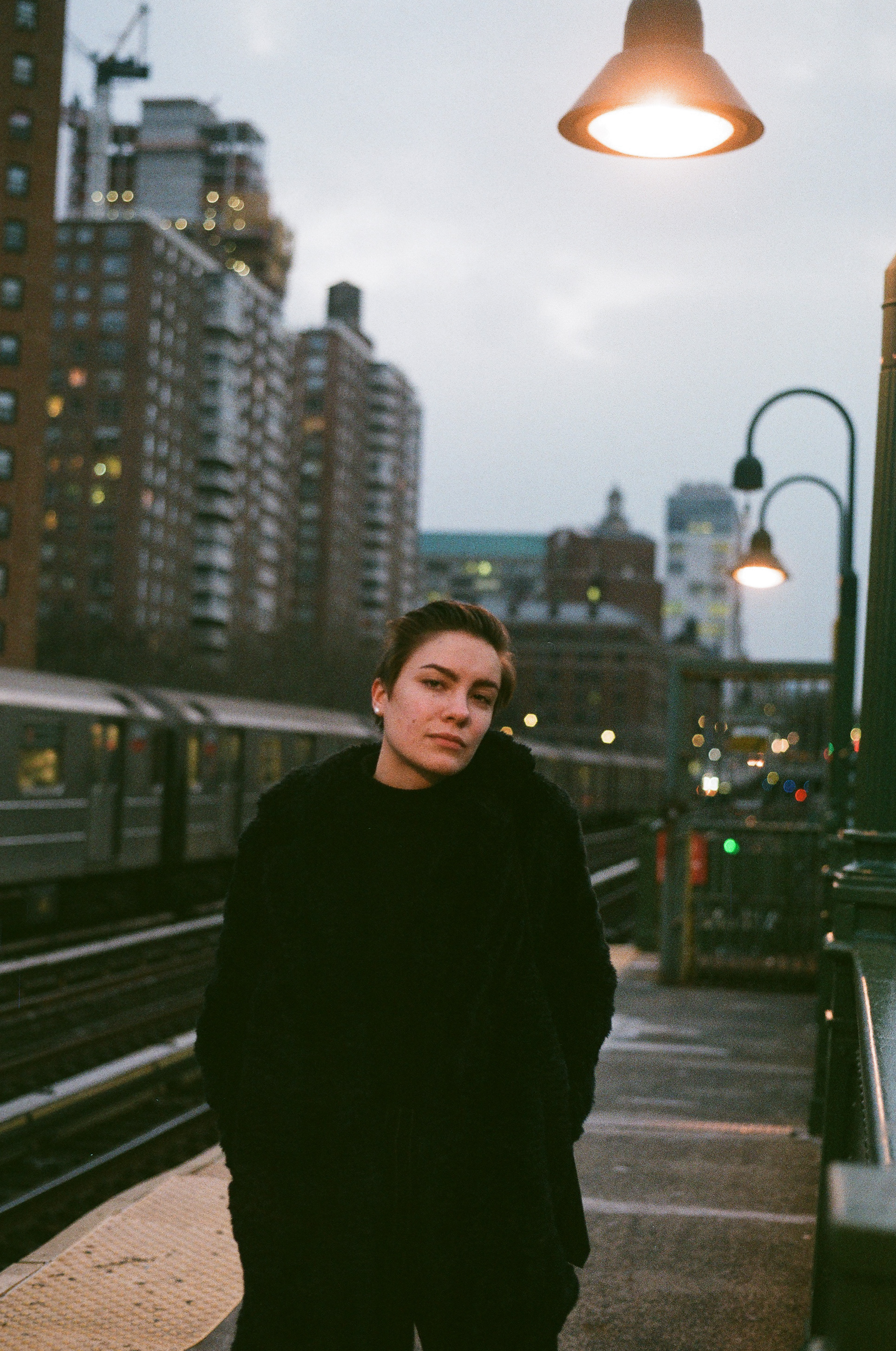
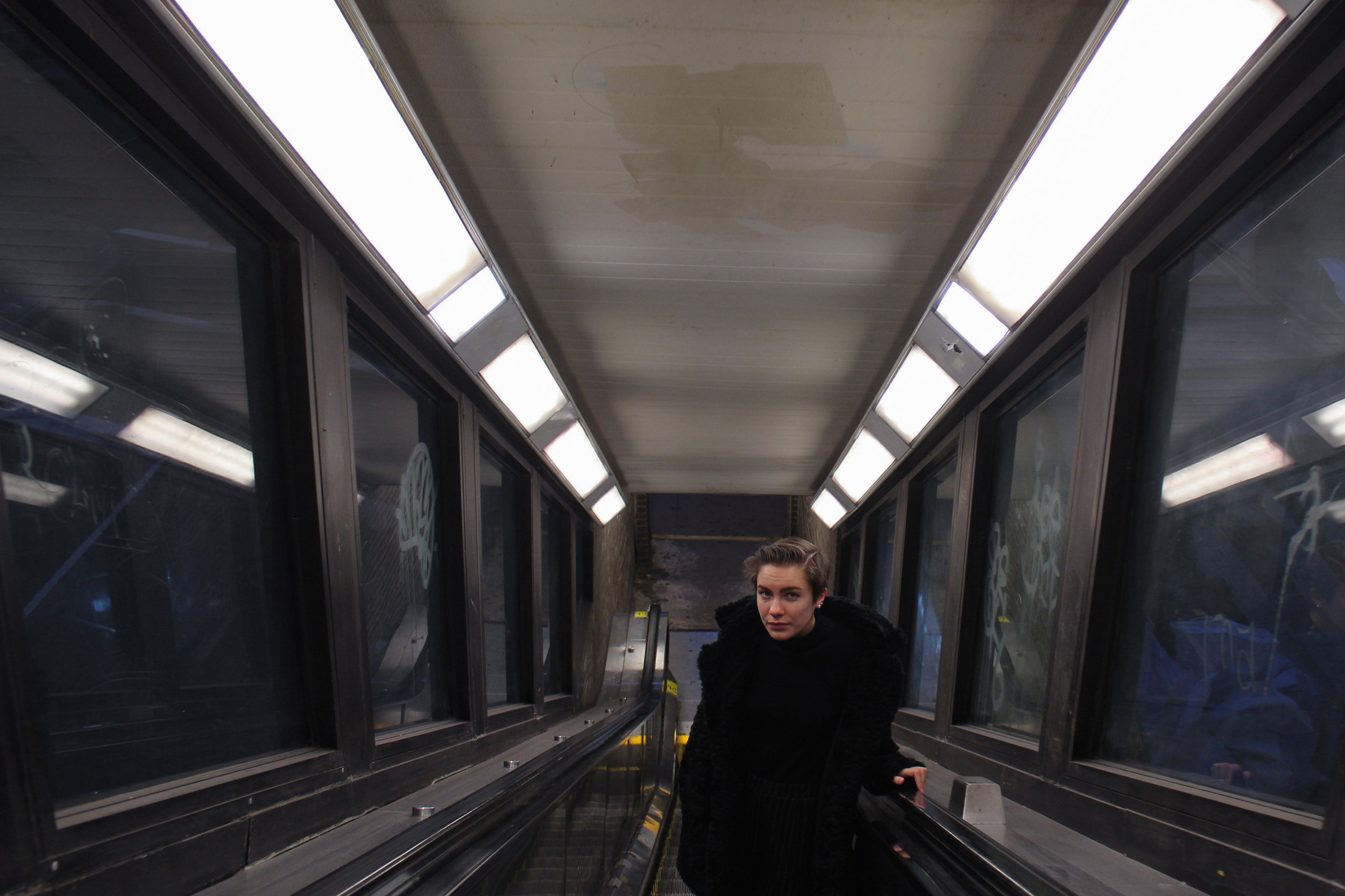
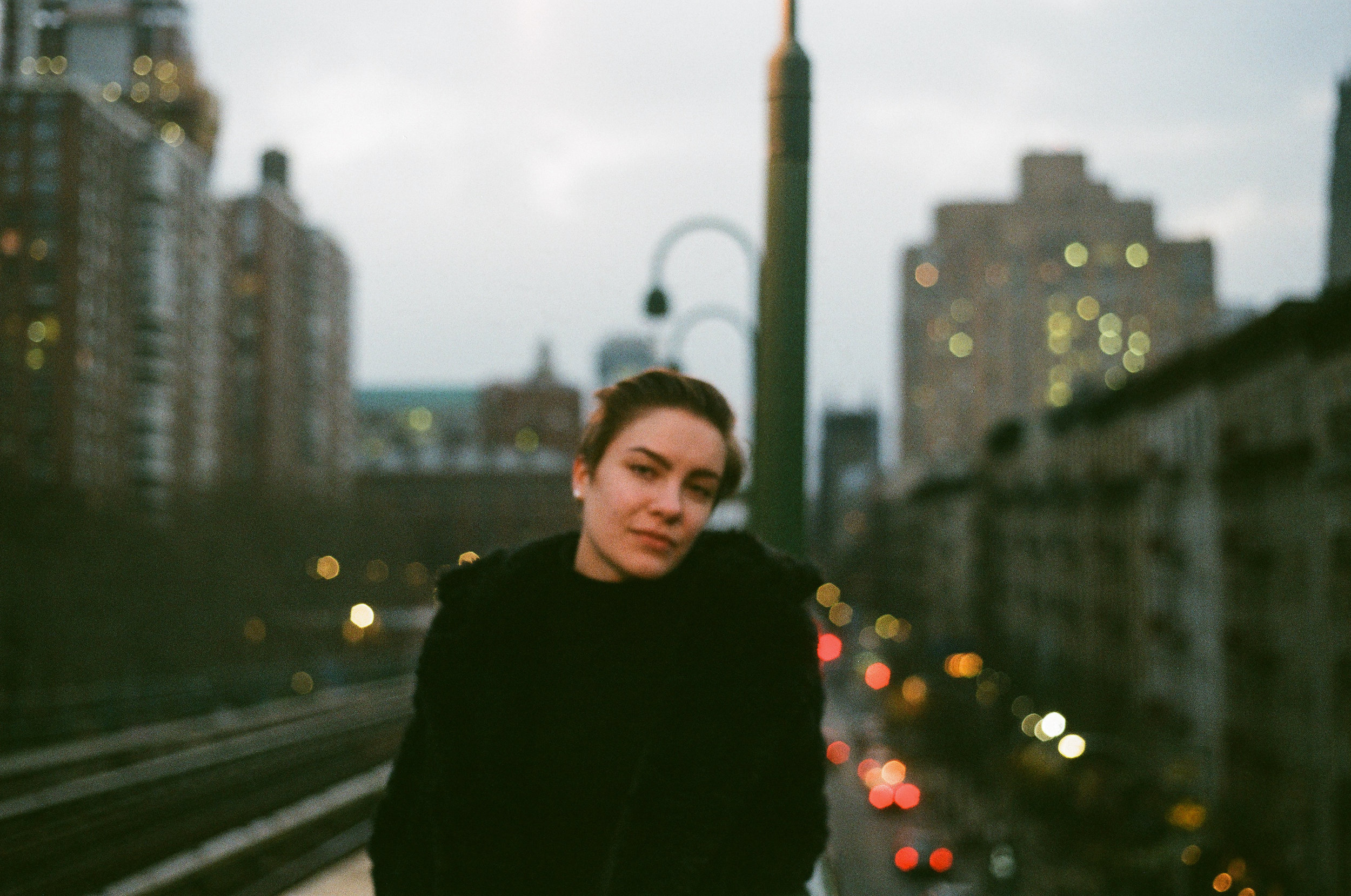
Photographed by Margaret Maguire
Interviewed by Elizabeth Meyer
Introduce yourself.
My name is Veronica Suchodolski. I am a senior at Barnard majoring in English, concentrating in creative writing, and double minoring in French and philosophy. I grew up in Amherst, Massachusetts. I am a writer, and I write a mix of long form prose and poetry. On campus I’m one of the managing editors of the Barnard Bulletin.
How do you see yourself? Do you define yourself as a writer?
I do define myself as a writer. I didn’t for a long time in part because I didn’t think I was very good, and I thought I had to get a “real job.” As I’ve gotten older, I’ve realized that this is what I want to do, so it’s silly to define myself as anything else. I also think because I’ve been writing for so long, it’s hard to tell whether I am a writer because I have certain personality traits or if I have certain personality traits because I’ve defined myself as a writer for so long. Things like being a listener and more quiet and observant.
Have you published your work in any on or off campus publications? If so, which ones?
On campus, I’ve been published in Echoes, Four by Four, Surgham, and also the Barnard Bulletin. Off campus, I’ve been published in Z Publishing’s New York’s Best Emerging Poets Anthology for 2017 and 2018.
How did you begin creating?
It’s not a very interesting origin story. I’ve kind of always been creating. I found this Lisa Frank notebook in my closet at home. I must have been four years old because the spelling was so bad, but I wrote this little story in the notebook about this princess with a pet Newfoundland, which is the type of dog that I grew up with. Writing has always been something that I’ve been interested in, and I don’t necessarily understand why. I was lucky enough to have teachers and a family who encouraged me to pursue it more seriously.
What is your writing process?
It depends on what else is going on in my life. Because as a student I’m really busy. Normally I try to write down fragments of things that I think would be really interesting and wait for something to build out of them. If I have more time, like during the summer, I’ll start writing from those fragments and see what ends up sticking into a longer piece. For example, at one point this summer, I started eight different things at once, and I was working on them in tandem until one of them started picking up speed. That was what I focused on. My process is a lot of free writing until something happens.
What are three words that describe you and then three words describing your work.
Post post-modern urban anxiety. Right now, I’m really into this idea of post post-modernism, it’s what I wrote my thesis on. Post post-modernism is about pushing back on post-modern irony, absolutism, meta-narratives, and this idea that there is no meaning. I’m tired of that mode of thinking; I don’t want to hear about it anymore. I’m interested in creating new systems of meaning and looking at old systems and acknowledging that those don’t work. But just because those don’t work doesn’t mean that we have to be hopeless and that there’s no meaning now. The urban anxiety refers to a sort of distrust of urbanism and capitalism. I’m from rural Massachusetts, so living in the city is an interesting experience.
Photograph by Margaret Maguire
Do you have a favorite writer?
As I child, I was into all of the cliché books. I read a lot of Harry Potter, and I read the Warrior series. I was into John Greene and the Hunger Games. Right now, I really like Ruth Ozeki who wrote All Over Creation. She also wrote My Year of Meats, which is one of my favorite books. I read it in high school and then re-read it this summer. Her writing is really accessible. It’s not prosaic and long and literary, but the way she writes a story is really impeccable, and the way she presents a character is so masterful. I was reading it this summer, and it was a million times better than I remember it being in high school. It’s so good.
Do you believe that accessibility in writing is important?
I’m really pro-accessibility in writing, and I think that’s partly just because I don’t see myself as someone with a huge vocabulary. Accessible writing is writing that is as clear as possible. A pet peeve of mine is when a writer uses a really complicated word, and they could have used a simpler one. I’ll be reading something for class, and I’ll come across a word and not know what it means. Even though I read a lot, I forget what things mean. I tend to write in more a simplistic style, and I appreciate when a sentence flows really well, and I don’t have to read it several times to understand what it means. I think it can be interesting to read a poem that doesn’t make sense on the first pass and work out its meaning. But in my own writing, I like to make it as clear as possible what I’m trying to do.
Are there writers and creators that whose work would be classified as ‘post post-modern urban anxiety’?
The conception that I’m working with regarding post post-modernism is called “new sincerity;” but if you look up new-sincerity, it’s all about David Foster Wallace and John Franzen who I do not like. Right now, the book that inspires me the most is Edenborough by Alexander Chee. His style is so interesting. It’s really evocative and metaphorical in a way that I haven’t seen before. He writes about really horrible things that happened to him, but he does it in such a beautiful way that you can’t look away; you have to keep reading even though it’s devastating. That’s sort of the model I’m working with right now.
What other artists and teachers have inspired you?
Alexander Chee is the big one right now. I am in Mary Gordon’s thesis seminar this semester on Virginia Woolf and something that she said in office hours was that she actually was going to be a poet, and then she read Virginia Woolf and was like, “oh I didn’t realize that you could do this with prose,” and that’s why she became a very famous short story writer. I’m really interested in how to make prose not dead, how to make prose poetic and lyrical - which is very hard I’m finding out.
Photograph by Margaret Maguire
How do you try to make prose lyrical? What is your preferred form when you write?
My preferred form is prose, but the reason that I write poetry is that I think it’s a useful pursuit on learning how to tighten up your writing because poetry has to be so tight to be at all good. I like writing poems: not because I want to be a poet, but because I think it’s going to be useful in getting at the kind of prose I want to write. Normally, when I write a poem, I’m trying to use as few words as possible to say what I want to say. When I go to writing prose, I try to keep that mindset of not just writing these long prose-y sentences with a lot in them that you don’t need.
What does your writing and revision process entail?
The writing process entails a lot of writing fragments until something happens. In terms of revision, my process is about trying to cut down words while keeping the same meaning. I also do this when writing poetry. Something I like to print out the draft of the poem I’m working on and cut out all of the words and play around with all of them. With prose, it’s a lot of reading and re-reading and when something doesn’t work, being ok with letting it go and completely starting over. I also read out loud a lot.
Pas de deux, 1957 engages with dance imagery. Why did you choose this title? How do you engage with dance? Do you dance?
The title is a really deep cut to this pas de deux that was performed by Arthur Mitchell at the New York City Ballet in 1957. I had the bizarre fortune to interview Arthur Mitchell the semester that I wrote for Spec. He was the first African American principal dancer in the New York City Ballet. I was thinking about that interview at the same time as I was thinking about this relationship that I was in. A pas de deux is a partner dance. There is a lot of tension but also a lot of working together, and so the two just went together in my mind.
In terms of dance, I don’t dance or really know anything about it. I wrote this title down and the first four lines of the poem which I think are the same in the final draft. And then I wrote this completely different poem that has almost nothing to do with dance, and I showed it to a friend who was like, “this isn’t bad, but you should really tighten up the dance imagery because that’s what’s working and nothing else really makes sense.” I watched a lot of dance videos and read a lot dance reviews to try to find the words to write about this thing that I don’t really know about.
Your piece 90-10 has vivid descriptions of places. Are there specific places that you are inspired by that manifest themselves in your work?
Yes. Anyplace that I’ve lived in for a long time ends up in my work. That poem was written the last summer I spent in my hometown. All of that humidity and farm imagery is very Amherst. I write about New York a lot because I live here. I spent a semester in Paris and wrote about Paris very often. Both of my parents are from Gdańk, Poland, and so I spent a few summers there with my grandparents and have written a lot about that.
Is writing a form of catharsis for you? If so, how?
Yes, definitely. A lot of times one of the first parts of my process, if I haven’t written something substantial in a while, is to do this creative journaling where I’ll write about things that have happened to me but in second or third person to create a narrative distance between what happened to me and what I’m writing. Ideally a good line or two will come out of that. I’ll take those lines and make something else out of them. It doesn’t always end up having something to do with what happens to me;, but since it was borne out of that emotion, it feels good to finish something.
What are your plans post college?
Post-college, my ideal goal is to spend some time doing arts and culture reporting for either a print newspaper or an online media company. You can view some of my work on my website.
